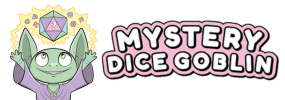Welcome, dear readers, to an intriguing journey through the captivating world of Dungeons and Dragons (D&D). As an experienced player and Dungeon Master (DM), I have delved into countless campaigns, creating memorable experiences for my friends and myself. In this article, however, we will explore a different side of D&D: the myths and misconceptions surrounding its perceived malevolence. Join me as we unravel the truth and dive into the fascinating history of this beloved tabletop role-playing game.
The Origins
Dungeons and Dragons, affectionately known as D&D, was birthed in 1974 by Gary Gygax and Dave Arneson who created the game. The game emerged from their collective imagination, blending elements of strategic wargames with interactive storytelling. Initially, D&D was played by a small community of enthusiasts, but its popularity soared, captivating millions around the world.
A Medium for Creativity
Contrary to popular belief, D&D is not an instrument of evil. Rather, it is a medium for boundless creativity, encouraging players to craft intricate narratives and assume the roles of heroic adventurers. It is an avenue for collaborative storytelling, enabling players to develop problem-solving skills, empathy, and teamwork. In my personal experience, I have witnessed players develop their writing skills, improvisational talents, and imaginative prowess through their involvement in D&D campaigns.
My Journey as a DM
Allow me to share a personal anecdote that highlights the positive impact of D&D. One of my players, let's call her Sarah, struggled with social anxiety. Through the immersive nature of the game, Sarah found solace and confidence in embodying her character, a fearless elven rogue. As the campaign progressed, Sarah's character faced challenging scenarios that mirrored real-life dilemmas. With the support of her fellow players, she discovered her voice, gained self-assurance, and ultimately conquered her anxiety. D&D became a transformative tool, empowering her to overcome personal obstacles.
Debunking the Myths
Now, let's debunk some of the myths surrounding D&D's alleged malevolence. Take a look at the table below, which presents common misconceptions and the corresponding truths:
| Myth | Truth |
|---|---|
| D&D promotes devil worship | D&D is a fictional game that does not endorse or encourage any form of real-world worship. |
| D&D leads to violence | Numerous studies have debunked the connection between tabletop RPGs and real-world violence. |
| D&D isolates individuals | Quite the contrary, D&D fosters social interaction, forging lasting friendships. |
| D&D is addictive | Like any enjoyable hobby, moderation is key. D&D can be a healthy and rewarding pastime. |
| D&D is only for the "geeky" | D&D welcomes individuals from all walks of life, embracing diversity and inclusion. |
Conclusion
As we conclude our exploration, it becomes evident that Dungeons and Dragons is far from an evil entity. It is a game that nourishes creativity, builds relationships, and empowers individuals to face challenges head-on. My journey as a player and DM has taught me that the true magic of D&D lies in its ability to shape lives and foster personal growth.
So, if you ever find yourself captivated by tales of valor, intrigue, and the power of imagination, don't shy away from Dungeons and Dragons. Embrace the adventure, gather your friends around a table, and embark on a journey that will forge memories to last a lifetime. Remember, the only darkness in D&D is the shadowy depths of the dungeons you'll explore together, and it is there that you'll discover the true essence









